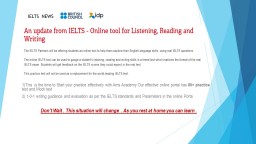Canada to welcome up to 390,000 immigrants in 2022-
CANADA TO WELCOME UP TO 390,000 IMMIGRANTS IN 2022- Express Entry Q1 2020: Big first quarter despite coronavirus April 2, 2020 cicnews There were more Express Entry candidates invited to apply for permanent residence in the first quarter of 2020 than there were in the first quarters of the two previous years. Though coronavirus is changing the Canadian immigration landscape, the year started off looking like it would be a big year for Express Entry. The 2020-2022 Levels Plan was announced less than a week before Canada began implementing coronavirus prevention measures. Canada’s target for this year was set at 341,000 new immigrants, of those 91,800 were set to be Federal High Skilled workers and 67,800 would be invited through provincial nominee programs. Express Entry draws were consistently held every two weeks since the first draw of the year on January 8. After Canada implemented special measures to slow the spread of coronavirus Canada held an Express Entry draw on March 18 that only invited provincial nominees. Canada held another exceptional draw five days later on March 23, only inviting candidates from the Canadian Experience Class immigration program. Canada to welcome up to 390,000 immigrants in 2022 Canada will welcome more than one million new permanent residents in the next three years. This was unveiled today in the federal government’s 2020-2022 Immigration Levels Plan. Compared with 2019, the government is increasing its PNP admission target by 20 per cent in 2022. Canada is also slated to welcome more immigrants under various pilots. It is aiming to welcome 5,200 under pilots such as the Agri-Food Immigration Pilot and the Rural and Northern Immigration Pilot. It may end up nearly doubling its intake under these pilots by 2022. Ref :https://www.cicnews.com/2020/03/canada-to-welcome-up-to-390000-immigrants-in-2022-0313872.html#gs.29pt7m







